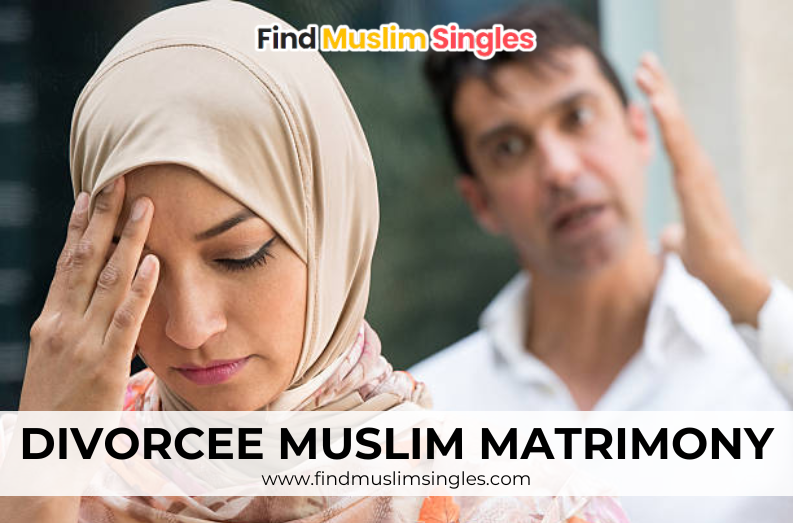
Healing and Growth: Self-Care in Divorcee Muslim Matrimony
In the realm of divorcee Muslim matrimony, the journey towards healing and growth is a deeply personal and transformative experience. Amidst the challenges of navigating a new chapter in life, self-care emerges as a vital component in fostering emotional well-being and resilience. As divorcees embark on the path of self-discovery and renewal, prioritizing self-care becomes essential for reclaiming inner peace, rebuilding confidence, and embracing the possibility of new beginnings.
1. Embracing Self-Compassion: Divorcee Muslim Matrimony
In the aftermath of divorce, it’s common for individuals in Muslim matrimony to experience feelings of guilt, shame, or self-doubt. Practicing self-compassion is key to counteracting these negative emotions and fostering a sense of acceptance and forgiveness towards oneself. By acknowledging their humanity and inherent worthiness, divorcees can cultivate a compassionate inner dialogue that nurtures self-esteem and self-love. Engaging in daily affirmations, journaling, or mindfulness exercises can serve as powerful tools for cultivating self-compassion and fostering inner healing in the context of Muslim matrimony.
2. Cultivating Emotional Resilience
The journey of divorcee Muslim matrimony often involves navigating a range of complex emotions, from grief and anger to hope and uncertainty. Cultivating emotional resilience is essential for weathering these emotional ups and downs and emerging stronger on the other side. Building resilience involves developing healthy coping mechanisms, such as seeking support from friends, family, or religious leaders, and engaging in activities that promote emotional well-being, such as exercise, meditation, or creative expression. By embracing resilience as a guiding principle, divorcees can navigate the challenges of Muslim divorce marriage sites with grace and courage.
3. Nurturing Physical Well-Being
Self-care in divorcee Muslim matrimony extends beyond emotional healing to encompass physical well-being as well. Prioritizing physical health through regular exercise, nutritious eating, and adequate rest can have profound effects on overall well-being and vitality. Engaging in activities that bring joy and relaxation, such as walking in nature, practicing yoga, or indulging in a favorite hobby, can also contribute to a sense of balance and fulfillment. By nurturing their physical health, divorcees can cultivate the energy and stamina needed to embrace the opportunities and challenges of Divorced Muslim online dating sites with resilience and vitality.
Discover your perfect match with FindMuslimSingles – where love meets faith.
4. Cultivating Spiritual Connection
For many divorcees in Muslim matrimony, reconnecting with their spiritual beliefs and practices can be a source of solace and strength during challenging times. Engaging in regular prayer, reading sacred texts, or attending religious gatherings can provide a sense of comfort and guidance in navigating the complexities of divorce and remarriage. Cultivating a deeper spiritual connection can also foster a sense of purpose and meaning, helping divorcees find peace and fulfillment amidst life’s uncertainties. By nurturing their spiritual well-being, divorcees can tap into a source of inner wisdom and resilience that sustains them on their journey of healing and growth.
5. Seeking Professional Support
In some cases, divorcees in Muslim matrimony may benefit from seeking professional support to address specific challenges or issues related to divorce and remarriage. Whether it’s through individual therapy, couples counseling, or support groups, professional support can provide divorcees with valuable tools and resources for navigating the emotional, logistical, and relational aspects of divorcee Muslim matrimony. A qualified therapist or counselor can offer guidance, validation, and practical strategies for coping with the unique challenges that divorcees may encounter on their journey towards healing and growth.
6. Cultivating Meaningful Connections
While self-care is often associated with individual practices, cultivating meaningful connections with others is also an essential aspect of healing and growth in divorcee Muslim matrimony. Building supportive relationships with friends, family members, or members of the Muslim community can provide divorcees with a sense of belonging, acceptance, and understanding during times of transition and adjustment. Engaging in social activities, volunteering, or joining support groups can create opportunities for connection and camaraderie, helping divorcees feel supported and valued as they navigate the complexities of divorcee Muslim matrimony.
7. Embracing Personal Growth
Ultimately, self-care in divorcee Muslim matrimony is about embracing personal growth and transformation in the aftermath of divorce. It’s about honoring the past, embracing the present, and envisioning a future filled with possibility and potential. By prioritizing self-compassion, emotional resilience, physical well-being, spiritual connection, and meaningful connections with others, divorcees can embark on a journey of healing and growth that empowers them to create a life that is rich in joy, fulfillment, and purpose despite the challenges they may face in Muslim matrimony.

